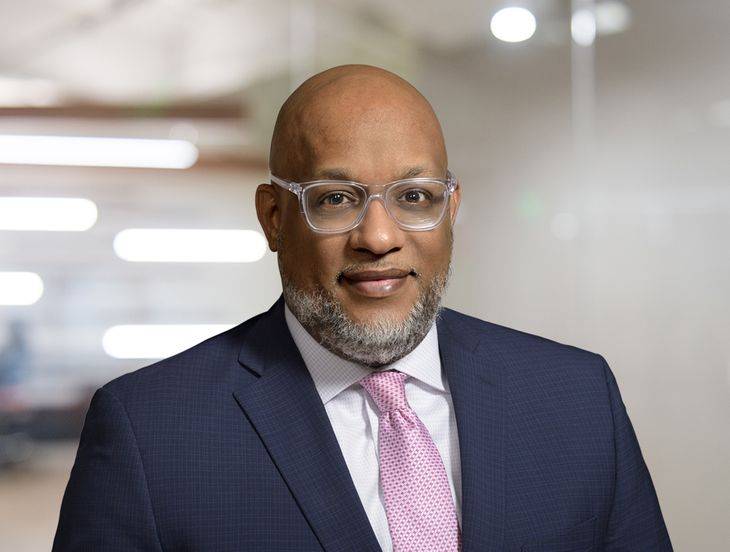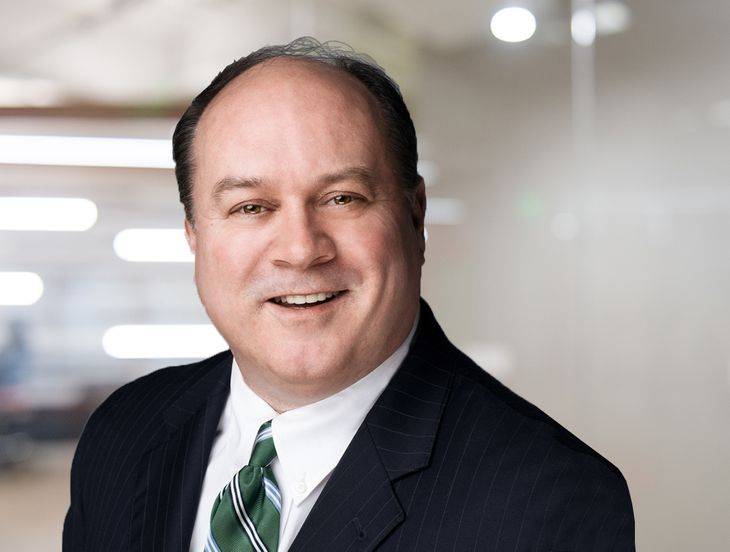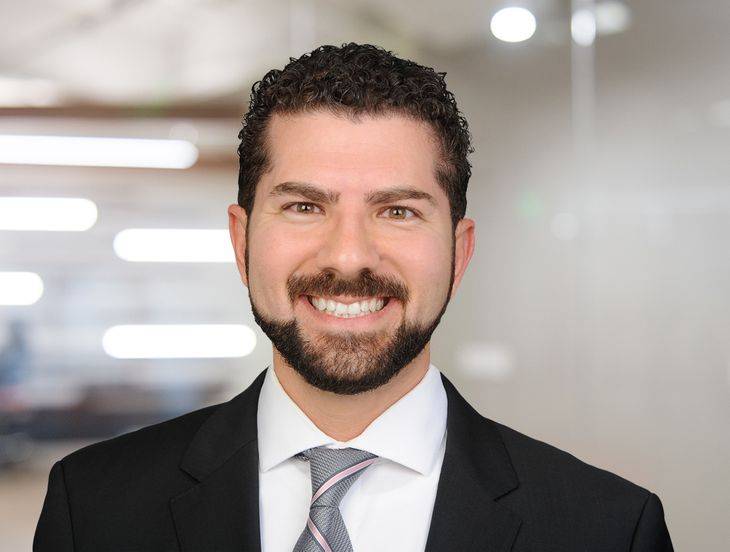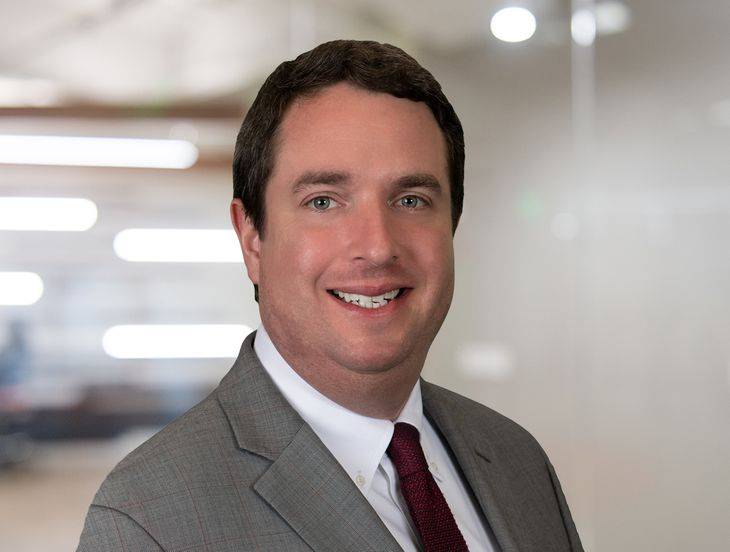WEB EXCLUSIVE - July 2019: The Top 18 Labor And Employment Law Stories
Insights
8.01.19
It’s hard to keep up with all the recent changes to labor and employment law. While the law always seems to evolve at a rapid pace, there have been an unprecedented number of changes for the past few years—and this past month was no exception.
In fact, there were so many significant developments taking place during the past month that we were once again forced to expand our monthly summary well beyond the typical “Top 10” list. In order to make sure that you stay on top of the latest changes, here is a quick review of the Top 18 stories from last month that all employers need to know about:
- Scalia To Take Labor Department Reins: What Does It Mean For Employers? – The news that President Trump selected Eugene Scalia to take over as Labor Secretary on July 19 caught some employers by surprise; after all, it was just a week prior that we were analyzing the track record of the soon-to-be-acting Secretary who many expected to helm the Department of Labor for an extended period of time. But now that it appears we have a likely successor in place to take over for Alexander Acosta, all employers are turning their attention to the same issue: what does this transition mean for the business community? We’ve once again assembled the opinions of some of our firm’s foremost thought leaders – including one of our partners who recently worked side-by-side with Scalia on a significant workplace law matter – to help provide a glimpse into what you should expect from the U.S. Department of Labor. The consensus opinion? Scalia will aggressively battle against intrusive and overreaching regulations that hamstring the country’s employers, and will quickly endear himself to the business community (read more here).
- Oregon Passes Nation’s Most Generous Paid Family Leave Law – While many Oregonians were enjoying a leisurely holiday break, Oregon lawmakers were busy enacting the nation’s most generous paid leave program. Governor Kate Brown stated she intends to sign into law“HB 2005: Paid Family Leave,” which will provide 12 weeks of paid leave to just about every employee in the state (yes, even if you only have one employee), to be funded by a new payroll tax paid by both workers and employers with 25 or more employees. While the law will not kick in until 2023, it’s never too early to learn about what’s around the corner and start to prepare. What do Oregon employers need to know about this groundbreaking new law? (read more here)
- Chicago Adopts Expansive Predictive Scheduling Ordinance – The Chicago City Council just approved what is likely the most expansive predictive scheduling law in the country. Business and labor groups came together with Chicago Mayor Lori Lightfoot’s staff and the city council to negotiate, draft, and approve the Chicago Fair Workweek Ordinance. The new law, approved on July 24 and set to go into effect on July 1, 2020, will soon mandate certain employers to give many lower-income employees advance notice of their schedules and face financial penalties for unexpectedly changing an employee’s shift. What do Chicago employers need to know about this significant new law? (read more here)
- Answers To Employer Questions In Wake Of Threatened ICE Raids – Immigration and Customs Enforcement (ICE) threatened to start to carry out a series of immigration raids this month seeking to identify and apprehend undocumented individuals – with some potentially occurring at the nation’s workplaces. These potential raids might continue for weeks or months, with varying levels of intensity and geographic focus. Even if they do not materialize to the extent originally promised, just the specter of these enforcement activities has raised a number of questions from employers about how to respond to such an action, and how to minimize the chances of them happening in the first place (read more here).
- 9th Circuit Kicks California Security Check Case Back To Lower Court – In a unanimous decision, the 9th Circuit Court of Appeals resuscitated class claims against retail giants Nike and Converse that allege employees are owed compensation for time spent undergoing security checks when exiting the retail stores (Rodriguez v. Nike Retail Stores, Inc.; Chavez v. Converse, Inc.). The federal appellate court held that the lower district court – which had ruled in favor of the employers by applying the federal de minimisdoctrine – needs to conduct a do-over to comply with a recent California Supreme Court decision that all but eliminates the de minimis doctrine based on the facts before the high court. The bar set by the courts is high; California employers may now need to pole vault in order to scale it (read more here).
- Labor Department Says Truck Drivers Need Not Be Paid For Sleeping: 3 Things You Need To Know About Opinion Letter – Trucking companies will no longer need to pay their drivers for certain off-duty time, potentially including time spent sleeping in their sleeper berth units, after the Labor Department issued an opinion letteryesterday confirming that such time is generally not compensable. The letter is a welcome one for the trucking industry, clearing up confusion caused by recent conflicting court decisions that held that off-duty time may be limited to eight hours a day when a driver is on a trip and spending off-duty time in their sleeper. However, you should make sure you understand the full ramifications of the opinion letter before changing your pay practices. Here are three things you need to know about yesterday’s significant news (read more here).
- NLRB Streamlines Process For Employers To Withdraw Union Recognition – The National Labor Relations Board relaxed its test for determining the legality of an employer’s anticipatory withdrawal of union recognition prior to the expiration of the collective bargaining agreement. In the July 3 Johnson Controls, Inc.decision, the Board upheld an employer’s right to suspend bargaining and serve notice within 90 days prior to CBA expiration of its desire to withdraw recognition from an incumbent union thereafter, upon receiving objective evidence that the union has actually lost majority support. The 3-1 decision found that such actions would not form the basis of unfair labor practice charges even if the union were to subsequently reestablish majority support through the filing of a new representation petition (within 45 days thereafter). In so holding, the Board overruled conflicting aspects of prior precedent in 2001’s Levitz v. Furniture Co. of the Pacific, which evaluated an employer’s “anticipatory withdrawal” by application of a “last in time” rule that relied extensively on union evidence establishing that it had regained majority support. A Board majority also suggested that it remained open to reexamining other forms of existing precedent governing the decertification process (read more here).
- California Governor Signs Law Prohibiting Employment Race Discrimination Based On Hairstyles – California Governor Gavin Newsom recently signed legislation to provide that prohibited employment discrimination based on race under the Fair Employment and Housing Act (FEHA) also includes discrimination based on hair texture and protective hair styles. This new law goes into effect on January 1, 2020. California employers will need to review workplace grooming standards in order to ensure compliance with the law. The legislation, Senate Bill 188by Senator Holly Mitchell (D-Los Angeles), specifically amends the definition of “race” under FEHA to include “traits historically associated with race, such as hair texture and protective hairstyles,” including “braids, locks, and twists.” The legislation was amended during the process to address similar discrimination in the public school education context. According to the author and supporters of the proposal, the legislation was necessary because societal stereotypes that define European features as the norm for “professionalism” disproportionately impact persons of color, especially African-Americans (read more here).
- New Jersey Amends Medical Marijuana Law – New Jersey Governor Phil Murphy recently signed into law amendments to the state’s medical marijuana law, providing greater clarity when it comes to the workplace implications of medical marijuana use by employees and applicants, while creating additional obligations for employers. The July 2 amendments took effect immediately, which means you should not delay incorporating the new law’s requirements into your day-to-day human resources practices (read more here).
- Obesity: A New Protected Class In Washington – The Washington Supreme Court held for the first time that obesity is a protected class under state anti-discrimination law (Taylor v. Burlington Northern Railroad Holdings, Inc.). The July 11 decision runs counter to recent federal court decisions in other parts of the countrythat have said obesity not caused by an underlying physiological disorder or condition does not qualify as an impairment under federal law. The main reason for this distinction is that Washington state disability discrimination law offers broader coverage than the federal Americans with Disabilities Act (ADA). While Washington employers may have grown accustomed to expansive disability discrimination protections in our state, the decision goes further than ever before and may require you to immediately adjust your personnel practices (read more here).
- 9th Circuit Kicks Dynamex Retroactivity Question To State High Court – With just a one-page, single-paragraph Order, the 9th Circuit Court of Appeals provided the faintest glimmer of hope for gig economy businesses everywhere on July 22 – but especially for those in California. The federal appeals court withdrew its May 2 decisionthat had extended the Dynamex decision on a retroactive basis, meaning that the ABC test might not necessarily be as broadly applied as we recently thought. Instead, the 9th Circuit decided to send the issue to the California Supreme Court, asking the state’s high court to conclude once and for all whether the ABC test should be applied to alleged misclassification controversies that arose before the Dynamex decision was ever issued (read more here).
- Noncompete Reform Continues In New England: Maine, New Hampshire, And Rhode Island All Pass New Laws – Noncompete reform continues to crop up in New England. We previously wrote about comprehensive reform in Massachusetts late last year, and now three more states have passed legislation in recent weeks. All three states – Maine, New Hampshire, and Rhode Island – now prohibit employers from entering noncompetition agreements with low-wage employees, though the definition of “low wage” varies by state. The bills in Maine and New Hampshire will soon become law, and the bill in Rhode Island has passed the legislature and is awaiting signature by the governor (read more here).
- Elizabeth Warren Becomes Latest Candidate To Unveil Pay Equity Plan – A few months ago, Kamala Harris unveiled an ambitious plan to introduce stricter legal measures to force employers to comply with pay equity standards. Fellow senator and Democratic presidential hopeful Elizabeth Warren has now announced her own pay equity plan that she would push were to she capture the White House in 2020. Warren’s plan, released on July 5, would promote pay equity – with a special focus on aiding women of color – by imposing new federal contractor rules and strengthening enforcement against systemic discrimination (read more here).
- Employers May Catch Temporary Break On Impending California Privacy Law – Thanks to recent negotiations among state lawmakers, it appears that California employers may get a temporary reprieve on some of the more sweeping data privacy requirements that were set to take effect in just a few short months. However, the pending legislation that would provide the delay would not exempt employers from significant disclosure requirements that also comprise the California Consumer Privacy Act (CCPA) – meaning you should still be in the process of preparing for the new law at your workplace. California Assembly Bill 25, which passed the Assembly in May and is currently pending in the Senate, was recently modified so that employers about to be covered by the CCPA would receive a one-year extension on the deadline to start tracking, responding to, and complying with employee requests for disclosure, copies, and deletion of the employee’s personal information you collect and maintain. Rather than the originally planned January 1, 2020 deadline, the amendment’s passage would push the effective date of this portion of the statute to the start of 2021. However, AB 25 would not exempt you from the January 1, 2020 deadline to start disclosing to employees the categories of personal information you collect and the business purposes for which this information is collected and used (read more here).
- More Than Just A Game: U.S. Women’s Soccer’s Equal Pay Quest Takes World Stage – As the newly crowned world champion U.S. Women’s National Soccer Team members received their winners’ medals on July 7, chants of “equal pay!”reverberated through the stadium. Those in attendance were well aware that the men’s 2018 World Cup prize was $400 million, while the female players will receive $30 million this year. Support for the athletes in their fight for pay equal to that received by their male counterparts also appeared to be behind fans booing FIFA president Gianni Infantino. Recognition of the issue was evident on social media, with Twitter reporting that there were five times more tweets about “pay” after the win, according to the BBC (read more here).
- Just (Don’t) Do It: Oregon Supreme Court Warns Against Cat’s Paw Retaliation – The Oregon Supreme Court just revived a whistleblower retaliation claim filed against sportswear giant Nike by adopting for the first time a novel legal concept known as the “cat’s paw” theory. The July 18 opinion opens new avenues for employees to pursue retaliation and discrimination remedies against employers. By reading a summary of the case and gaining a better understanding of this theory, you can avoid running into similar legal trouble with your employees (read more here).
- Federal Mine Safety And Health Review Commission Issues Unanimous Decision Vacating Fall Protection Citation – Unanimous decisions from the Federal Mine Safety and Health Commission are rare, but on July 11, the Commission ruled 5-0 to reverse an Administrative Law Judge’s finding of a fall protection violation in Sims Cranebecause the ALJ improperly shifted the burden of proof. Vacating the decision before it, the Commission found that the ALJ focused upon Sims’s counterarguments without determining whether the Secretary proved his claims by a preponderance of the evidence. The Commission then held that the Secretary failed to establish that a danger of falling existed as a violation of section 56.15005 requires. It vacated the Secretary’s citation without remand (read more here).
- Democratic Presidential Contender’s New Plan Calls For Protections For Gig Workers – The gig economy has caught the attention of at least one presidential candidate who has unveiled a plan called “A New Rising Tide” which, among other things, calls for greater protections for gig economy workers. South Bend Mayor Pete Buttigieg put forth a plan on July 26 that calls for guaranteeing “gig economy workers their labor rights, including unionization” and states that “millions of Uber and Lyft drivers lack basic protections because they’re misclassified as independent contractors.” Independent contractors are not protected under current federal labor and employment laws and most state laws. Buttigieg’s plan states that in order to provide gig economy workers with the protections of the Fair Labor Standards Act he “will support codifying the simple ‘ABC test’ for classifying workers nationally in order to prevent workers in the gig economy from being denied minimum wage, overtime, and antidiscrimination protections–and their ability to unionize” (read more here).
If you have any questions about these developments or how they may affect your business, please contact your Fisher Phillips attorney.
This Legal Alert provides an overview of specific legal developments. It is not intended to be, and should not be construed as, legal advice for any particular fact situation.
Related People
-
- Davis C. Bae
- Partner
-
- Cheryl L. Behymer
- Senior Counsel
-
- Clarence M. Belnavis
- Co-Regional Managing Partner
-
- Steven M. Bernstein
- Regional Managing Partner and Labor Relations Group Co-Chair
-
- Jessica D. Causgrove
- Partner
-
- Micah Dawson
- Partner
-
- Benjamin M. Ebbink
- Partner
-
- Edwin G. Foulke, Jr.
- Partner
-
- Todd A. Fredrickson
- Partner
-
- Rosemary S. Gousman
- Partner
-
- Greg Grisham
- Partner
-
- Christine E. Howard
- Executive Partner, Management Committee
-
- Usama Kahf, CIPP/US
- Partner
-
- Todd A. Lyon
- Partner and Labor Relations Group Co-Chair
-
- Richard R. Meneghello
- Chief Content Officer
-
- Cheryl Pinarchick
- Senior Counsel
-
- John M. Polson
- Chairman & Managing Partner
-
- Susan M. Schaecher
- Senior Counsel
-
- Stephen Scott
- Regional Managing Partner
-
- Shanon R. Stevenson
- Partner
-
- David J. Treibman
- Of Counsel
-
- Travis W. Vance
- Regional Managing Partner
-
- Alexander A. Wheatley
- Partner
-
- Arthur M. Wolfson
- Partner
Service Focus
- Government Contracting, Compliance, and Reporting
- Privacy and Cyber
- Employee Defection and Trade Secrets
- Employee Leaves and Accommodations
- Employment Discrimination and Harassment
- Immigration
- Labor Relations
- Litigation and Trials
- Pay Equity and Transparency
- Counseling and Advice
- Wage and Hour
























